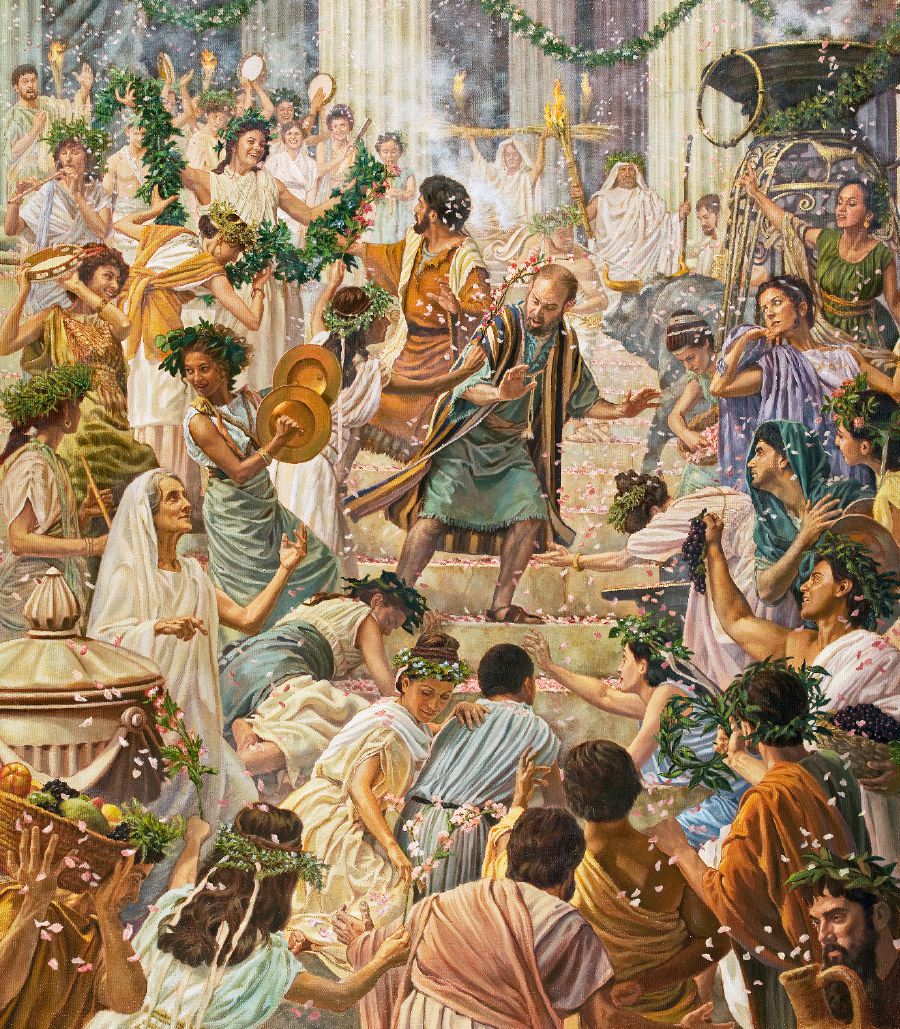APọl r’aBanabạs usooromhi loor, okpọ olhoghi, kụ oghiọm ghisigh oḍighi iphelhegbeel phọ
1, 2. Ighẹn araraạr kụ imite mem mọ aPọl r’aBanabạs odi bọ Listrạ?
1Bạl onhụ English
2 Bạl onhụ English
3. Ighẹn asipuru kụ edị yira kooḅeghiọn siẹn emhuoghaạph phọ ephẹn phọ?
3 Bạl onhụ English
“Iminighạn . . . Omeeraam” (Iiḍighi 14:1-7)
4, 5. Uḍighi ika kụ aPọl r’aBanabạs oghị bọ epẹ Aikoniom, kụ eeghe kụ imite epẹ phọ?
4 Bạl onhụ English
5 Bạl onhụ English
6. Uḍighi ika kụ aPọl r’aBanabạs oḍighi bọ bugey abutughemhiạ, kụ ika kụ idị yira kotughaạny bidị?
6 Bạl onhụ English
7. (a) Awe romegheron ghan ika kụ okị esi iiḅi iinhaghạn phọ? (b) Ewạ mọ tuutughiạn eeghe eḍighi maạr dị igbaragbarạ edi eghunotu anyinha loor iduọn nạ rakumu bọ aZihova?
7 Bạl onhụ English
8. Uḍighi ika kụ aPọl r’aBanabạs oḍuạ bọ Aikoniom, kụ eḍeenhaan phọ abidị itughemhị iyira eeghe?
8 Bạl onhụ English
“Ekiton Esoman Enaạn” (Iiḍighi 14:8-19)
9, 10. AListrạ arọl ghan eghẹn, kụ yira olegheri eeghe ilọ awe phọ orugh ghan bọ epẹ phọ?
9 Bạl onhụ English
10 Bạl onhụ English

“Turn from these vain things to the living God, who made the heaven and the earth.”—Acts 14:15
11-13. (a) APọl r’aBanabạs uḅenhị eeghe we phọ orugh bọ epẹ Listrạ? (b) Eeghe kụ eḅẹl iyaạr ituughạ dị yira omhiịn esi ipẹ aPọl r’aBanabạs oghaạph bọ?
11 Bạl onhụ English
12 Bạl onhụ English
13 Bạl onhụ English
14-16. Ighẹn iyạl araraạr kụ edị yira oḅilhẹ otuughạ esi ipẹ aPọl r’aBanabạs oḅenhị bọ we phọ orugh bọ epẹ Listrạ?
14 Bạl onhụ English
15 Bạl onhụ English
16 Bạl onhụ English
“Oḅọgh Bidị Ongọ Omoọgh-we Phọ” (Iiḍighi 14:20-28)
17. APọl r’aBanabạs oḍuạ bọ Daabi uḅilhẹ oghị eghẹn, kụ eeghe kụ iḍighi?
17 Bạl onhụ English
18. Ropogh ghan eeghe kụ ogbi omạ onyọ umor idiphọ okumor oye?
18 Bạl onhụ English
19. Ikumor awe phọ olegheri mọ bidị kogbạ ipẹ bidị oḍighi bọ oḍighi phọ oḅenhị anhiạn, kụ ika kụ idị bidị rotuughaạny ghan Pọl r’aBanabạs?
19 Bạl onhụ English
20. Oghẹn asuọ kụ edị yira romoọgh ghan mem dị yira aạl ilọ omạ oḍighi phọ abumor phọ ayira roḍighi bọ?
20 Bạl onhụ English